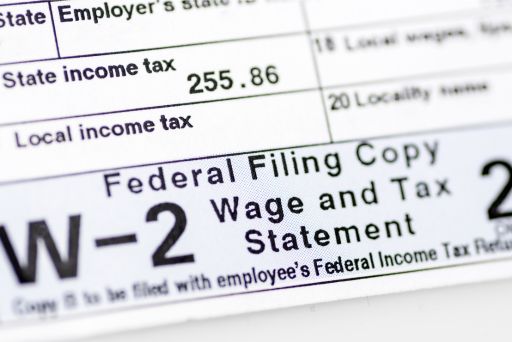If you’re not receiving a refund on your federal taxes this year and just found out that you’ll actually owe money to the IRS, you’ll need to get that payment in as soon as possible. This is a common scenario for small business owners, self-employed taxpayers, and those who have held too little money withheld from their regular paychecks for the past year.
If you owe money on your federal taxes and need to pay the IRS, there are a few ways to go about this:
- IRS Direct Pay: The simplest and quickest way is to visit the IRS website and choose the Direct Pay option. This will pull money directly from your bank account at no additional cost to you. The Direct Pay option also allows you to pay your federal taxes with a credit or debit card.
- EFTPS: You can also use The Electronic Federal Tax Payment System (EFTPS) to pay your federal tax bill. This secure government website allows taxpayers to submit their payments electronically. To enroll, or for more information on enrollment, visit EFTPS or call EFTPS Customer Service to request an enrollment form: 1-800-555-4477
- Pay by Check or Money Order: If you choose to mail your federal tax payment, make your check or money order out to the US Treasury. Do not use staples or paperclips to attach the check to your return. You’ll also need to include your name, address, daytime phone number, Social Security number or EIN, tax period and related tax form or notice number on your form of payment. Mail your payment to the address listed on the notice or instructions.
- Same Day Wire Payment: Same-Day Taxpayer Worksheet to complete your transaction. If you are paying for more than one tax form or tax period, complete a separate worksheet for each payment.
- Auto-Pay through your tax preparation software: Many tax preparation software programs give you the option of making the federal tax payment to the IRS for you. Turbotax and TaxAct both offer this option when you reach the end of your tax forms.
If you are unable to make your payment in full, visit this post for information on setting up a payment plan with IRS.
Still confused? We can help you make your Federal Tax Payment to the IRS if you are unable to use any of the methods listed above. If you owe money to the state, this post will direct you to the proper place to submit your payment.




 The deadline for mailing 1099s to contractors for your small business is February 2nd this year, a few days later than the usual January 31st deadline. Before you prepare all of those forms just yet, you’ll want to read up on the regulations concerning contractors paid by credit card or PayPal.
The deadline for mailing 1099s to contractors for your small business is February 2nd this year, a few days later than the usual January 31st deadline. Before you prepare all of those forms just yet, you’ll want to read up on the regulations concerning contractors paid by credit card or PayPal.


















